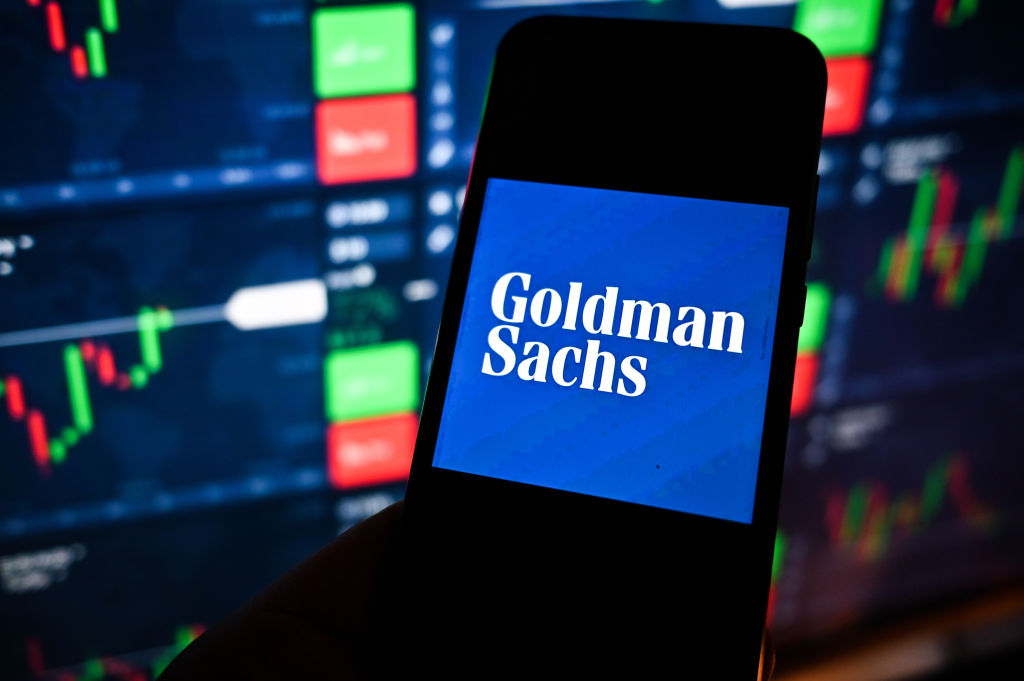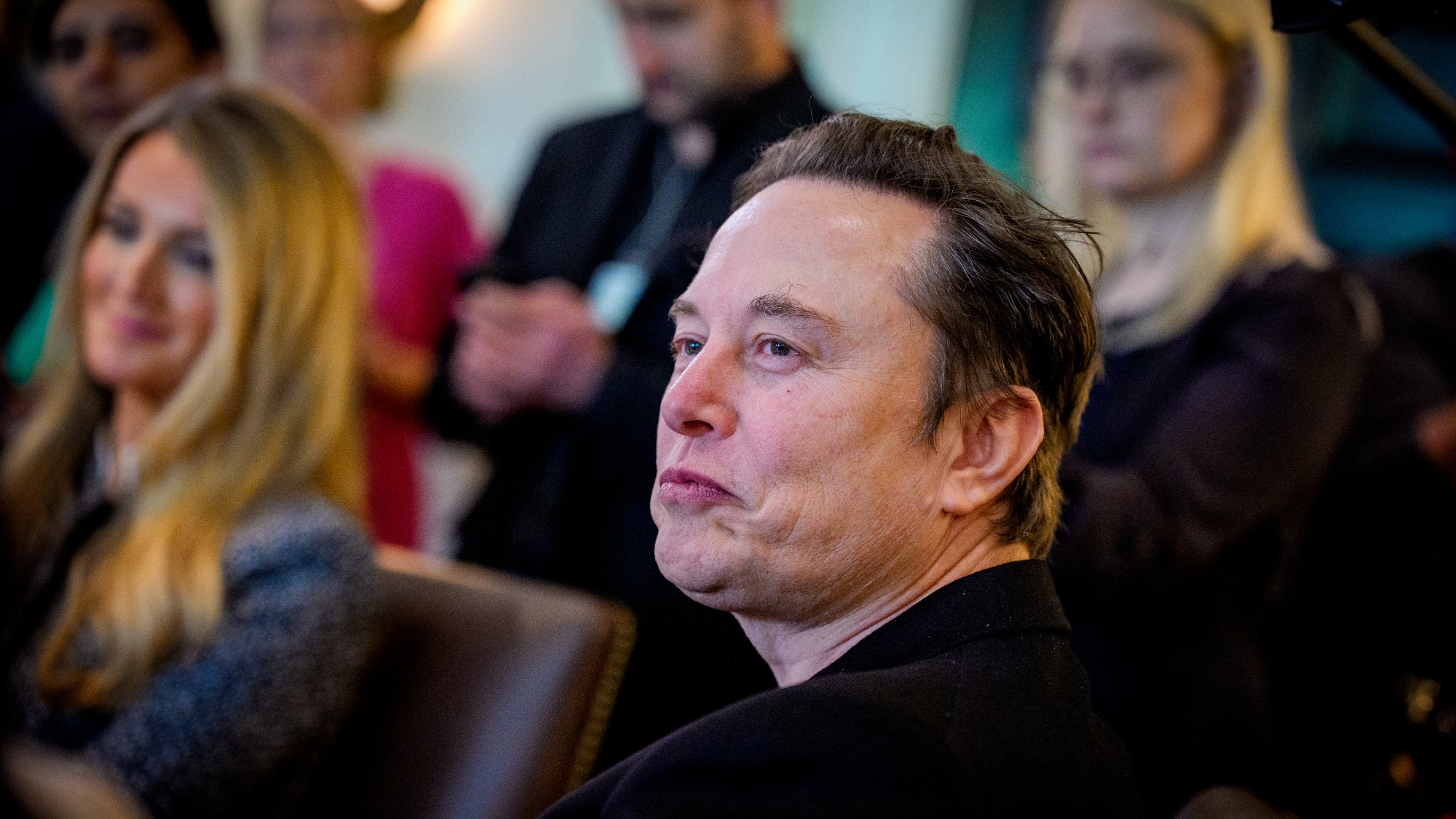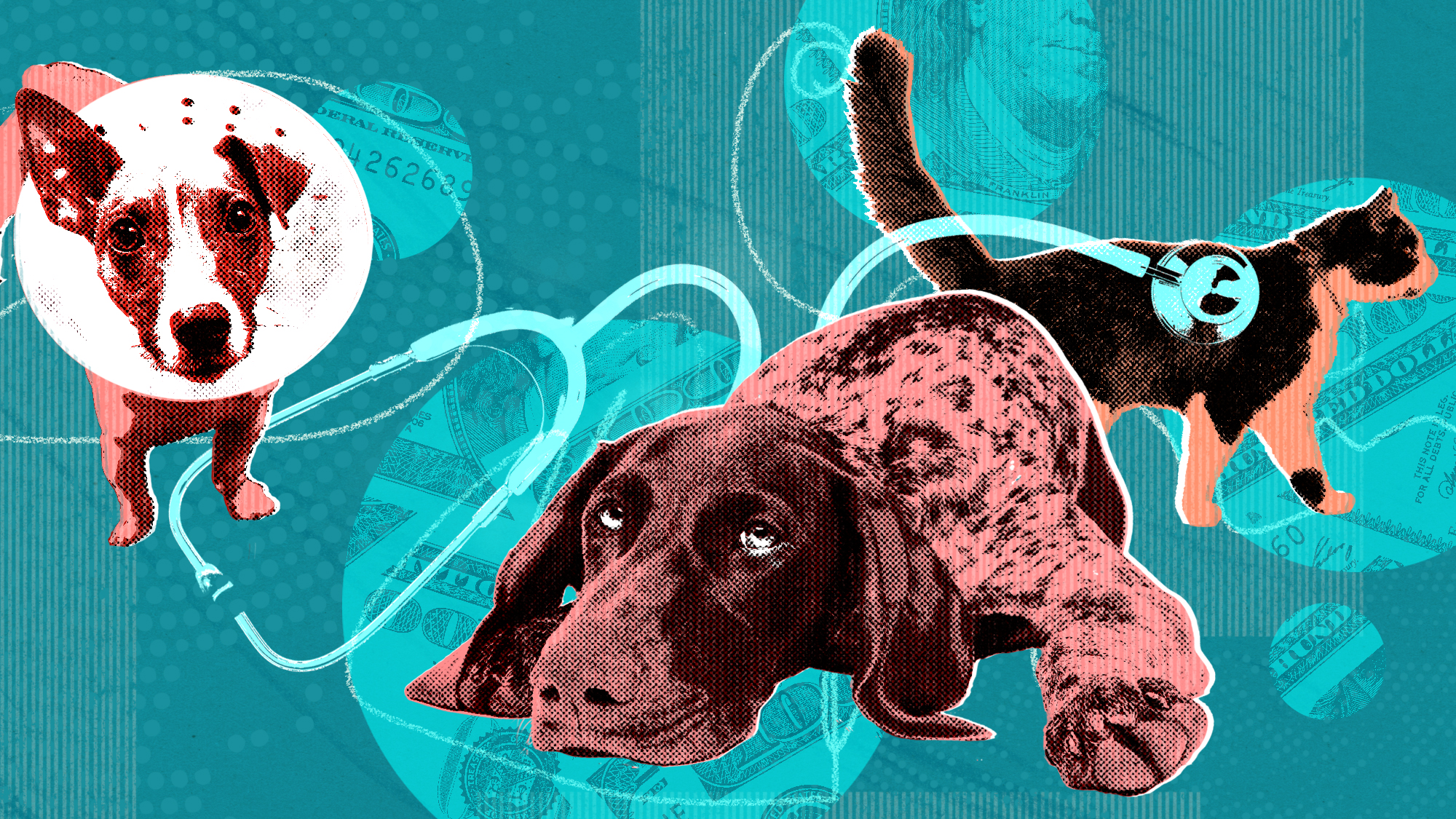Finance: Goldman loses its edge
Why did the CEO take a pay cut?

A free daily email with the biggest news stories of the day – and the best features from TheWeek.com
You are now subscribed
Your newsletter sign-up was successful
The smartest insight and analysis, from all perspectives, rounded up from around the web:
Goldman Sachs this week slashed the pay of its CEO, David Solomon, sending a message that the high-profile chief is "just another member of the team," said John Foley in Reuters. The Wall Street bank's move to cut Solomon's pay by a third, to $25 million, makes sense at a time when, "like many of its peers, it is shrinking head count and bonuses." Yet where employees see solidarity, investors may see "instability." Solomon has "already conceded dropping the ball" on the bank's consumer-lending project, abandoned "mere months after raising its targets." Though presented as a display of unity, the move might also suggest that after four years at the top, the CEO and chairman is "losing the confidence of his board."
Goldman once "reveled" in its reputation as what Rolling Stone called the "great vampire squid" that "relentlessly jammed its blood funnel into anything that smells like money," said The Economist. Over the past decade, though, it has lost its ruthless momentum and been "comprehensively outperformed" by its rival Morgan Stanley. Solomon has admitted trying to do "too much, too fast" with the foray into consumer lending that went "badly wrong"; provisions against bad loans may have accounted for more than 10 percent of Goldman's operating expenses last year. The CEO's "blunt" management style has precipitated "a series of high-profile departures" from a firm once known for the "lifetime" devotion of its employees. Goldman's stock now trades at book value, "implying that investors would do just as well to liquidate" the company.
The Week
Escape your echo chamber. Get the facts behind the news, plus analysis from multiple perspectives.

Sign up for The Week's Free Newsletters
From our morning news briefing to a weekly Good News Newsletter, get the best of The Week delivered directly to your inbox.
From our morning news briefing to a weekly Good News Newsletter, get the best of The Week delivered directly to your inbox.
Solomon's defense is that he "always said he was playing the long game," said Paul J. Davies in Bloomberg. The hope was that diversifying beyond volatile trading gains would please Wall Street and boost its stock. The problem is that investors' desire for more stable earnings doesn't "mean they want Goldman to become a sprawling financial conglomerate," an entity that is "rarely valued highly." And Goldman still relies on "costly rainmakers and traders"; last year, the bank "recorded its highest ever end-of-year staffing bill" despite making a 14.5 percent cut in staff costs, "the most among peers."
"Ask most people to name an investment bank and the reply is 'Goldman Sachs,'" said John Gapper in the Financial Times. For years, Goldman and Morgan Stanley were the Coke and Pepsi of the investment business. Quietly, though, Morgan Stanley "pulled the Pepsi trick on Goldman." Just as Pepsi diversified away from soda, so Morgan Stanley moved away from financial trading to wealth and investment management. That's where Goldman should be headed, too, said Bram Berkowitz in The Motley Fool. Goldman already has "$2.5 trillion of assets under management," and that's "nothing to sniff at." But this still "pales in comparison" with Morgan Stanley. Going after ordinary consumer loans and checking accounts was a "big blunder" that delivered nothing but "billions in losses." Now, embarrassingly, Morgan Stanley, once a perennial also-ran, is more highly valued by investors, and the once invincible Goldman is in the unfamiliar position of playing catch-up.
This article was first published in the latest issue of The Week magazine. If you want to read more like it, you can try six risk-free issues of the magazine here.
A free daily email with the biggest news stories of the day – and the best features from TheWeek.com
-
 The ‘ravenous’ demand for Cornish minerals
The ‘ravenous’ demand for Cornish mineralsUnder the Radar Growing need for critical minerals to power tech has intensified ‘appetite’ for lithium, which could be a ‘huge boon’ for local economy
-
 Why are election experts taking Trump’s midterm threats seriously?
Why are election experts taking Trump’s midterm threats seriously?IN THE SPOTLIGHT As the president muses about polling place deployments and a centralized electoral system aimed at one-party control, lawmakers are taking this administration at its word
-
 ‘Restaurateurs have become millionaires’
‘Restaurateurs have become millionaires’Instant Opinion Opinion, comment and editorials of the day
-
 Trump wants a weaker dollar, but economists aren’t so sure
Trump wants a weaker dollar, but economists aren’t so sureTalking Points A weaker dollar can make imports more expensive but also boost gold
-
 The longevity economy booms as people live longer
The longevity economy booms as people live longerThe Explainer The sector is projected to reach $27 trillion by 2030
-
 Texas is trying to become America’s next financial hub
Texas is trying to become America’s next financial hubIn the Spotlight The Lone Star State could soon have three major stock exchanges
-
 How could worsening consumer sentiment affect the economy?
How could worsening consumer sentiment affect the economy?Today’s Big Question Sentiment dropped this month to a near-record low
-
 Musk wins $1 trillion Tesla pay package
Musk wins $1 trillion Tesla pay packageSpeed Read The package would expand his stake in the company to 25%
-
 From candy to costumes, inflation is spooking consumers on Halloween this year
From candy to costumes, inflation is spooking consumers on Halloween this yearIn the Spotlight Both candy and costumes have jumped significantly in price
-
 Rising costs are making it harder for people to afford pets
Rising costs are making it harder for people to afford petsUnder the Radar Shelters are filling up as a result
-
 Grocery stores under fire for overcharging during cost-of-living crisis
Grocery stores under fire for overcharging during cost-of-living crisisThe Explainer A recent investigation has put the spotlight on Kroger, but it is not the only chain being pinpointed